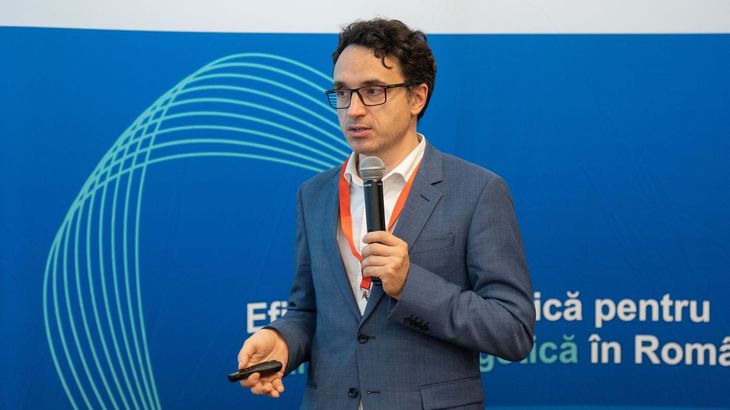Energy efficiency is a strategic priority for the European Union, which promotes the principle of “energy efficiency first” through several sources of co-financing of investments, and the Romanian authorities are looking for solutions to tick off as many of the assumed targets as possible, said Matei Dimitriu, Advisor within the Directorate of Energy Efficiency of the Ministry of Energy, during the conference “Energy efficiency for the energy transition – Oradea”, organized in Oradea by Energynomics together with the Romanian Fund for Energy Efficiency – FREE and the Directorate for Energy Efficiency within the Ministry of Energy.
“It’s about many targets that we have to analyze not so much through the prism of the challenge itself, but what we can do considering that resources are limited. We probably need to find solutions to find more benefits in a financing axis. We need to think more systemically and calculate how we can tick off more elements with that money,” said Dimitriu.
Directive 2012/27/EU on energy efficiency required Member States to take energy efficiency measures in order to meet the objective of reducing the EU’s annual energy consumption by 20% by 2020. In 2018, in the “Clean Energy” package for all Europeans,” a new target was set to reduce final energy consumption by at least 32.5% by 2030.
In July 2021, the Commission proposed a new target of reducing EU greenhouse gas emissions by at least 55% by 2030 compared to 1990 levels and climate neutrality by 2050. The new form of the Directive is under negotiation.
The Presidency of the Council and negotiators of the European Parliament reached a political agreement on 10 March 2023 to collectively ensure a reduction of final energy consumption by at least 11.7% in 2030 compared to the 2030 energy consumption forecasts made in 2020.
This means an upper limit for EU final energy consumption of 763 million tonnes of oil equivalent and 993 million tonnes of oil equivalent for primary consumption.
In Romania, several initiatives were launched to meet EU requirements. One of these initiatives is the financing program for small and medium-sized enterprises and economic operators in the HORECA field for the installation of photovoltaic panel systems for the production of electricity with an installed power between 27 kWp and 100 kWp, necessary for own consumption. Surplus energy would be delivered to electric car recharging stations and into the national energy system.
According to Dimitriu, 2,500 files were submitted through this program, of which 1,835 were accepted and financing contracts with a total value of 600 million lei were signed.
However, the Electric-up program needs improvements to increase the processing speed of submitted files.
“We have already identified ways and we are working on improvements. We are also discussing the introduction of heat pumps into this mix with storage batteries and photovoltaic plants. The problem is that about 70% of the projects were submitted during the last period of the program and it is difficult to manage from an administrative point of view,” added Dimitriu.
He also said that in the area of ensuring energy efficiency in the industrial sector, there are very few submitted projects, but the authorities are looking for ways to encourage companies to apply for financing. At the same time, the Ministry of Energy intends to soon launch a financing guide for energy production projects from household waste, as there is interest from potential beneficiaries.
The conference in Oradea was the 2nd of a series of 5 scheduled by the Energynomics communication platform, the Romanian Fund for Energy Efficiency – FREE and the Directorate for Energy Efficiency within the Ministry of Energy. The project is financed by Norway Grants 2014-2021.
